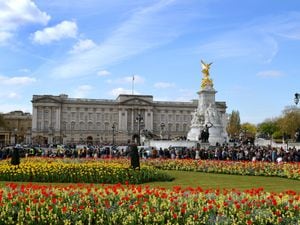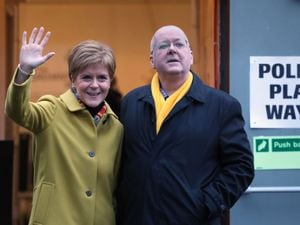Twenty being treated for ‘horrific injuries’ following Manchester attack
The chief officer of the Greater Manchester Health and Social Care Partnership confirms some people have life-threatening injuries.
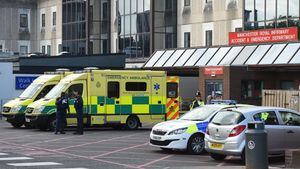
Some 20 people are being treated for “horrific injuries” in critical care following the Manchester attack, a senior NHS official has said.
Jon Rouse, chief officer of the Greater Manchester Health and Social Care Partnership, confirmed that some people have life-threatening injuries.
He told the BBC: “They’ve been the sort of traumatic injuries that you would expect in terms of the type of device used, the proximity to the people who were injured.
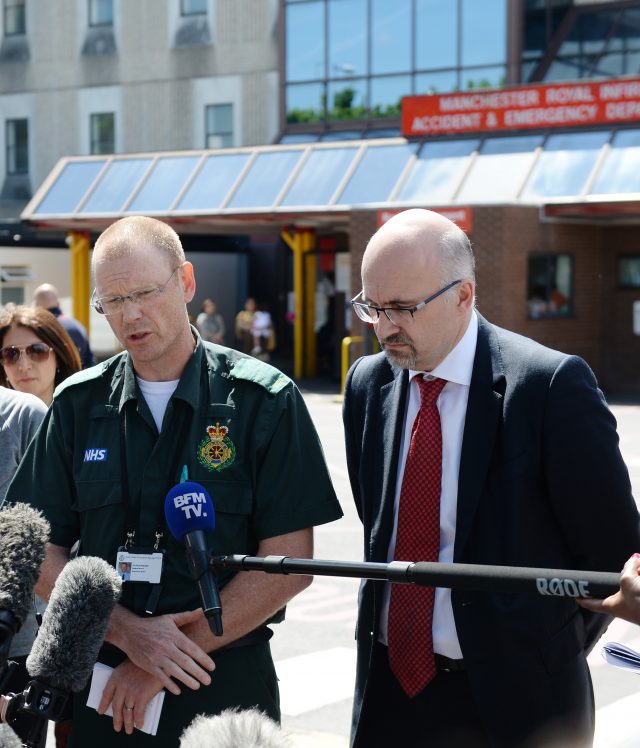
“We’re dealing with injuries to major organs, we’re dealing with loss of limbs potentially, we’re dealing with embedded objects, all the horrific injuries that you would expect from the event that happened.”
He said the victims were “receiving round-the-clock treatment from doctors and nurses”.
Some 59 people were hurt in the attack and 12 of those rushed to hospital were children.
Dr Steve Jones, an A&E consultant at Manchester Royal Infirmary, said the staff “pulled together in a very impressive way”.
Medics worked through the night and came in on days off to treat the victims, many of whom had suffered injuries similar to being in a car crash, he added.
“It potentially had the ability to overwhelm what we were doing,” he said.
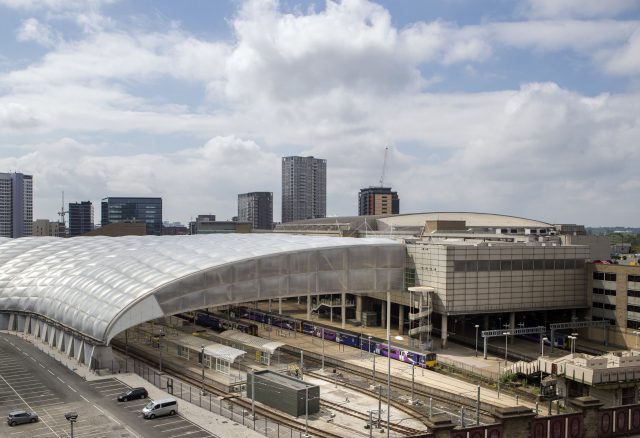
Dr Jones said one of the hardest things was dealing with “lost” patients who were unidentified and separated from their families.
“If there’s no name it’s really difficult to make that connection with a patient,” he told reporters at a press conference.
“I had a number of relatives here who got here before they knew where their relatives were – those relatives and patients were disconnected, they were here and they were lost.”
Dr Peter-Marc Fortune, a consultant in paediatrics at Manchester Children’s Hospital, said it was “a number of hours” before all the children were identified.
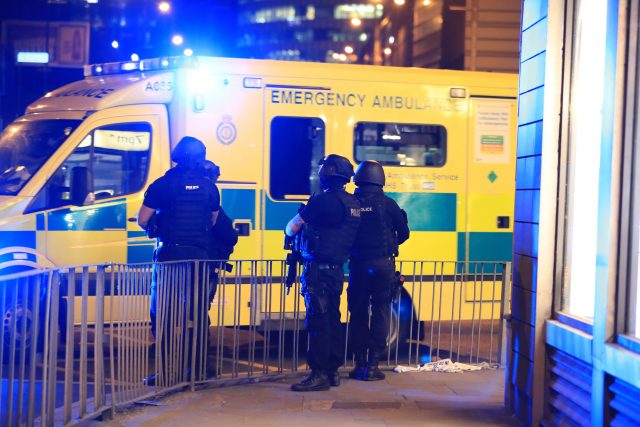
“I can’t imagine what their parents were going through but actually it was remarkably hard – not having a clue of the name of the person you were looking after and not knowing where their parents were to be able to talk to them and share with them actually what was going on, that was really difficult,” he added.
He said hospital staff “pulled out the stops left, right and centre” as they rallied around during the crisis.
“We have felt the community around us – there’s been so much well wishing on social media that we’ve seen,” he added.
“We’ve had fantastic support – people have very kindly sent in the most amazing amounts of sandwiches, pizzas and whatever.”

